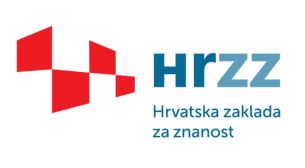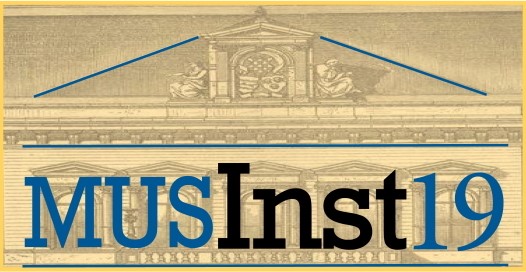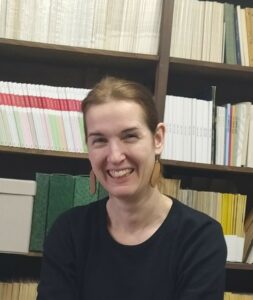Institutionalization of modern bourgeois musical culture in the 19th century in civil Croatia and Military Border (MusInst19)


HRZZ IP-2020-02-4277
Project duration: November 22, 2021 – November 21, 2025
Project leader: STANISLAV TUKSAR
Project associate: VJERA KATALINIĆ, LUCIJA KONFIC, PETRA BABIĆ
Theoretical background. Starting from the positions of contemporary sociological theories of nationalism, the case of Croatia and its historical lands in the 19th century represents a model of Herderian ‘Kulturnation’ (Bohlman – Herder) against ‘Staatsnation’ (Hutchinson, Kohn), This project MusInst19 confirms in its totality this model in the area of musical culture in a paradigmatical way, which is also the case with Czech, and only partially with Hungarian model. In the history of ideas and sociology (Gellner) new forms of social organization in bourgeois societies are investigated – imposition of a high culture on society, promotion of modern culture – and the process was under way in which individual and social determinants moved from universal towards particular. In this, cultural nationalism, within which this process occurred (Smith), was not only pushing forward ideology, language, arts, ethnicity, and historicism, but also favoured modernization of society and national educational system. This process in the area of musical culture in general, and in Croatia in particular, can be followed as the construction of the idea of national and its realization in the fields of national opera (Lisinski, Zajc), gathering of folk and art treasures (Kuhač, Udina-Algarotti), the establishing of civil societies and their gradual institutionalization (Musikvereine), systematization of musical artefacts in the form of founding national history of music and ethnomusicology, etc.
Scientific contribution of the project. The aim is to identify, document, analyse, and assess various models of private and public initiatives in the field of music, and their transformation into state institutions as fundaments of modern bourgeois culture. These models will be researched and presented in several case studies:
- the relationship of outstanding musical, scholarly and other public personalities (V. Lisinski, I. Zajc, F. Ks. Kuhač, Lj. Gaj, J. Jelačić, I. Kukuljević, I. Mažuranić, D. Khuen-Hédérvary) and political instances (governments acts, parliament sessions, military authorities) as decisive factors in the transformation of private initiatives into social organizations;
- collection of music material which became or had been included into public libraries (e.g. Udina-Algarotti collection) or made part of printed collections (e.g. F. Ks. Kuhač’s collection of South-Slavic Songs);
- supporting of composing, performing and reception of national operas as individual author’s works aiming at creating and strengthening of national identity and social cohesion;
- private music salon as a model of half-public music-making, creating of standards in performing quality, and as focal point of national in music (Illyrian salons);
- military music included in civil public music sphere (opera, town musics, church music).
Importance of the research for development of the area of research and society. New funds will be created (and the existing ones enriched) by material artefacts (statues of music societies in Zagreb, Varaždin, Osijek and Krk; catalogue of the Udina-Algarotti collection; 4th book of Kuhač’s correspondence; monograph on national operas in non-German nations of the Habsburg Monarchy) which will considerably contribute to the new perception, interpretation and insights into social history of music in the 19th century in Croatia, as well as in the understanding of the genesis of modern Croatian bourgeois society in areas of musical and general cultures.
Methodology and research problems. The project will be conducted by use of different research methods, depending on the researched material, the state of its arrangement and availability, and in different phases of work on specific topics various combined methods will be used, depending on actual research needs and demands. The reviewing and purchasing of needed literature and its consulting will be the first phase of each particular research. It is made easier to a certain extent by the availability of these sources via internet. The next and in some research areas parallel method is the discovering and the analytical review of archival sources (statues of music societies, music collection Udina-Algarotti; reception of musical life in Zagreb printed media); epistolary heritage of F. Ks. Kuhač; documentation of Ban’s governments and Parliament sessions; archives of the Military Border). Some of the topics are articulated so that they include the comparative qualitative method with foreign experiences and achievements (functions of national operas in the lands of Habsburg Monarchy; some basic data on music societies in Prague, Lviv/Lemberg, Vienna, etc.). The gathered material will be systematically ordered for entering in data bases. Methodological questions and problems will be regularly discussed at working sessions, the workshop and at the final conference.
All gathered material (all types of literature, lists of archival sources, results of research, etc.) will be stored in the Division for history of Croatian music of the Institute for history of Croatian literature, theatre and music of the Croatian Academy of Sciences and Arts in Zagreb, Opatička St. 18.
The established data bases will be built in the already existing data base on F. Ks. Kuhač (kept in the Division for the history of Croatian music) within the data base of the HRZZ NetMus19 project, the international data base Muscat in the RISM (Répertoire international des sources musicales), and will be given at disposition to the general data base on Military Border, housed in the Croatian institute for history, within the frames of the HRZZ project MLWICB.
Research problems might appear in the form of unpredictable non-availability of documentation (caused by organizational affairs of the owners and the physical state of material), which might influence the order of activities within the project; the possibility of the unpredictable loss of material (caused by technical problems with the equipment) will be envisaged by housing the material gathered and produced within this project in twofold way: physical and digitally, and in more than one place.
Significant expected results.
- The discovery of the primary documentation on initiatives, founding and organization of music societies in Zagreb, Varaždin, Osijek and Krk in art music area in civil Croatia and Military Border, as well as acts of civil and military authorities (local authorities, parliament and government, military commands, etc.) which such initiatives transformed into institutionalized organizations.
- Identification, systematization, scholarly elaboration and presentation of such primary documentation to scholarly and broader public sphere in Croatia and abroad, and the valorization of such gathered and systematized documentation as the process of transformation and modernization of society in civil Croatia and Military Border, i.e. of the transition from late feudal to modern bourgeois society.
- Identification of various phenomena within this process (dissemination of music education, forming of the audiences, establishing of the repertory, establishing of bourgeois salons, forming of collections of music materials, establishing of institutions, etc.) as social improvement of single segments of musical and general culture (democratization of music education, broader access to public performances, the increase of quality in presenting music, etc.). The crucial idea is that in the area of 19th-century musical culture in civil Croatia two most important phenomena appeared (both in Zagreb), which started as private initiatives and were transformed by socio-political decisions into fundamental national institutions: Musikverein in 1827 turned into Croatian Provincial Music Institute in 1861 (later, in the 20th century, to become Conservatory and Academy of Music), and music theatre from aristocratic (Amadé’s theatre in 1797) via bourgeois (Stanković theatre in 1864) to Croatian National opera theatre in 1870.
- Identification of convergence of phenomena in music performing area (military musics in function of public civil musics, composing of civil topics by military musicians, etc.) as part of the process of mutual cultural and social approaching of structures in civil Croatia and Military Border until its abolishment in 1881.
Thus researched and elaborated basic documentation will result in preparing manuscripts for publication of research results in four case studies:
- Publication of the statutes of civic music societies (Zagreb, Varaždin, Osijek, Krk) as basic documents which formalized civil initiatives in the area of music;
- Publication of the catalogue of the Udina-Algarotti collection and its study as a typical case of gathering tendencies of the bourgeois society for pedagogical aims, in which the specificity of Croatian cultural habitus is manifested, i.e. the osmosis of the Mediterranean and central-European cultural circles;
- Publication of the 4th book of Franjo Ks. Kuhač’s correspondence as a first-class central-European type of networking of various private and public interests in musical circles;
- Publication of the monograph on national operas in three non-German nations of the Habsburg Monarchy (Croatia, Hungary, Czechia) as artefacts with the help of which in the area of musical theatre national homogenizations occurred, as well as intensifying of national identities in the multi-national state of Habsburg Monarchy.

Stanislav Tuksar / SIN: 6583
Education
1990 PhD, Name of the institution: University of Zagreb, faculty of Humanities and Social Sciences
1978 Master, Name of the institution: University of Zagreb, Academy of Music
Employment
2015 – Position: retired; Professor emeritus
Name of the institution: University of Zagreb, Academy of Music
Previous employments
- 1970-1980: – Position: assistant, Name of the institution: Musicological Institute, Academy of Music, University of Zagreb
- 1980-1992: assistent – senior research fellow, Name of the institution: Institute for Musicological Research, Yugoslav (today: Croatian) Academy of Sciences and Arts
- 1992-2015: full professor, Name of the institution: Depertment of Musicology, Academy of Music, University of Zagreb
Fellowships and Awards
- 1974-1976: fellowship of the French Government, Paris, Université de Paris IV – Sorbonne
- 1986-1988: fellowship of the Humboldt Stiftung, West Berlin, Staatliches Institut für Musikforschung, Preussischer Kulturbesitz, Germany
- 1998: Charter of the City of Zagreb
- 2008, 2015: Yearly „Dragan Plamenac Award“, Croatian Musicological Society
- 2018: Yearly „Dragan Plamenac Award“ Life Award, Croatian Musicological Society
Supervision of doctoral students and postdoctoral researchers
- 1991-2015: 18 diploma theses (supervised and graduated)
- 2002-2012: 11 MA theses (supervised and defended)
- 1994-2018: 7 PhD theses (supervised and defended)
- 2018-2019: 1 postdoctoral supervision
Names of institutions: Academy of Music, Faculty of Humanities and Social Sciences, Faculty of Croatian Studies (all University of Zagreb), University of Zadar
Teaching activities
- 1979-2020 – Scientific area: musicology, Name of the institution: Academy of Music, Faculty of Croatian Studies
1994-2005, 2010-2011: aesthetics of music – The J.J. Strossmayer University in Osijek
Organisation of scientific meetings
- 1978-2019: main organizer of 18 scholarly meetings, among which 16 international ones (Osor 1978, 1979, 1980; Zagreb 1989, 1994, 2011, 2014, 2016, 2017. i 2019; Madrid 1992; Venice 1995, 1999, 2003; Rijeka 1996, 2001; Split 1997; Dubrovnik 2001)
The last five:
- 2019: Music, Arts and Politics: Revolutions and Restaurations in Europe and Croatia 1815-1860, main organizer, international musicological meeting, 57 participants, Zagreb, Croatia
- 2017: The First World War (1914-1918) and Music. Compositional Strategies, Performing Practices and Social Influences, main organizer, international musicological meeting, 47 participants, Zagreb, Croatia
- 2016: The Impact of the Battle of Szigetvár and the Myth of Nikola Šubić Zrinski on the Arts (Music, Visual Arts, Literature) organizied on the Occasion of the 450th Anniversary of the Battle of Szigetvár (1566), main organizer, international musicological meeting, 27 participants, Zagreb, Croatia
- 2014: Ivan Zajc (1832-1914): Musical Migrations and Cultural Transfers in Central Europe and Beyond in the ‘Long’ 19th Century, main organizer, international musicological meeting, 28 participants, Zagreb, Croatia
- 2011: Franjo Ksaver Kuhač (1834-1911): Musical Historiography and Identity, main organizer, international musicological meeting, 33 participants, Zagreb, Croatia
Institutional responsibilities
- 1980-1992: Vice-Director of the Institute for Musicological Research, Croatian Academy of Sciences and Arts, Zagreb, Croatia
- 1997-2000: Vice-Dean of the Academy of Music, University of Zagreb
- 2001-2007; 2013-2018: President of the Croatian Musicological Society, Zagreb, Croatia
- 2005-2010: Head of the Department of Musicology, Academy of Music, University of Zagreb
- 2019-(2022): Secretary of the Depertment for Art Music and Musicology, Croatian Academy of Sciences and Arts
- 2019-(2022): member of the Presidency of the Croatian Academy of Sciences and Arts
Memberships
- 1992-today: member of the Croatian Musicological Society
- 1992-today: member of various juries at universities in Zagreb, Split, Kansas City and Berkeley (USA)
- 1987-1992; 2018-today: member of the International Musicological Society, Basel
- 1996-2009: music editor in Croatian Encyclopaedia, Lexicographical Institute Miroslav Krleža, Zagreb
- 2007-2008: evaluator of scholarly projects for the Irish Research Council for the Humanities & Social Sciences (IRCHSS)
- 1980-today: member of the editorial boards of scholarly journals:
– 1980-today: International Review of the Aesthetics and Sociology of Music, Zagreb (Associate Editor; since 2000 Editor-in-Chief)
– since 1980: Arti Musices, Zagreb (1990-1997, Editor-in-Chief)
– 1981-2002: Current Musicology, New York (corresponding editor)
– 1987-1991; 2011-2015: Acta Musicologica, Basel
– 1996-2005: The South African Journal of Musicology, Sunnyside (Overseas Panel)
– since 2006: De musica disserenda, Ljubljana
– since 2010: Kroatologija, Zagreb
– since 2014: Prilozi za istraživanje hrvatske filozofske baštine, Zagreb
– since 2018: Muzika (Sarajevo)
Major scientific collaborations (if applicable)
Names of collaborators / Topic / Name of the organisation / City / Country:
- 1995-2003: Giulio Cattin, Ivano Cavallini, Croatian-Italian Musical Connections 1000-2000, Fondazione Levi, Venice, Italy
- 2007-2013: Barbara Przybyszewska-Jamińska, Elżbieta Witkowska-Zaremba, Croatian-Polish Musical Connections 1500-1900, Institute of Arts, Polish Academy of Sciences, Warsaw, Poland

Vjera Katalinić, PhD , Senior researcher / SIN: 35001
- Education: BA (1978) and MA (1990) in musicology at the Music Academy of the University in Zagreb, Ph.D. from the University of Vienna (1999)
- DAAD scholarship at the Free University in Berlin (1987/88)
- Awards: “F. Kuhač” award, Croatian Music Institute (1978), Croatian Academy of Sciences and Arts Award for 2006 and for 2014, “Dragan Plamenac” award of the Croatian Musicological Society for 2006 (2007), “Josip Andreis” award of the Croatian Composers’ Society for 2014 (2015).
- Employment: since 1983 in the Department of History of Croatian Music (from 2001 research associate, since 2006: senior research associate; since 2010: scientific adviser, since 2015 scientific adviser with tenure), and since 1992 manager of the Department
- Teaching: since 1996 lecturer; since 1999 Assistant Professor; and since 2008 Assoc. prof., and from 2013 Full Professor at the Department of Musicology, Music Academy in Zagreb
- Associate member of the Croatian Academy of Sciences and Arts (2014)
- Guest lectures at universities in Croatia, Italy, Ireland, Poland, Austria, Romania and the U.S.
- Project leader of the European project: EU HERA: Music Migration in the Early Modern Age: The Meeting of the European East, West and South (MusMig, 2013-2016);
- Project leader of the Croatian Science Foundation project: Networking through music: changes of paradigms in the “long 19th century“ – from Luka Sorkočević to Franjo Ks. Kuhač (NETMUS19; 2017-2021)
- Principal investigator on the project of the Ministry of Science and Technology: “W. A. Mozart and Croatian Musical Culture 1750-1820 “(1992-1995);
- Associate on the project of the Ministry of Science and Technology “Arranging and elaboration of musical archives in Croatia” (1992, 1997, 2007-2013);
- Associate on the international interdisciplinary project: “Oper im Wandel der Gesellschaft” (2005-2008, Volkswagen Stiftung); “Europe and Beyond: Transfer, Networks and Markets for Musical Theatre and Modern Europe, 1740-1960” (2009-2011, European University Institute, Florence);
- Main areas of research: musical culture in the 18th and 19th centuries, the mobility of music and musicians; music archives in Croatia;
- Published four books as author, 10 proceedings and seven monographs as editor, prepared one musical edition and edited eight; author of some 230 research and professional papers in journals and proceedings in Croatia, Slovenia, Italy, Austria, Germany, Spain, Poland, Lithuania, Hungary, France, Romania and the U.S. .; author of entries in major Croatian and international encyclopaedias and manuals;
- Participated in some 130 scientific and professional meetings in Croatia, Slovenia, Bosnia & Herzegovina, Italy, Austria, Hungary, Germany, Spain, Great Britain, Denmark, Slovakia, Ukraine, Russia, Poland, Lithuania, Cyprus, Rumania, the U.S. and Canada
- Organized and co-organized 13 international and twenty national scientific and professional meetings and workshops
- Member of the editorial series published by Croatian Musicological Society, editor-in-chief of the journal Arti musices (1998-2005, 2016-2019), deputy editor (2016-2015, 2020-), member of the editorial board of the journal Muzyka (Warsaw) and Radovi Zavoda za znanstveni rad HAZU (Varaždin), corresponding editor of the journal Current musicology (New York)
- President of the Croatian Musicological Society (2007-2013, 2019-2022), member of the International Musicological Society.

Lucija Konfic, PhD , researcher / SIN: 285183
- Education: 2005. MA in Musicology, Music Academy, University of Zagreb; 2008. MA in Librarianship, Faculty of Humanities and Social Sciences, University of Zagreb; 2017. PhD in Musicology, Universität für Musik und darstellende Kunst in Graz (title: Giuseppe Michele Stratico’s Treatises on Music between Theory and Practice: Edition and Commentary“, supervisor prof. dr. sc. Klaus Aringer)
- Employment: 2003-2006. Music School Albert Štriga Križevci (guitar teacher); 2004-2006. Music School Albert Štriga Križevci (Music history teacher); 2006-2018. Assistant and librarian at the Department for the History of Croatian Music, Croatian Academy of Sciences and Arts, Zagreb; 2018- Research Associate at the Department for the History of Croatian Music, Croatian Academy of Sciences and Arts, Zagreb
- Teaching: 2017- Musicology Department, Music Academy, University of Zagreb (Lecturer: Croatian Baroque Music, Music Archives)
- Participating on projects: 2006-2013. Sorting and Cataloguing of Music Materials in Croatia (PL: F.C.A. Stanislav Tuksar), collaborator; 2006- RISM-Croatia (Répertoire International des Sources Musicales) (PL: dr. sc. Vjera Katalinić), collaborator; 2013-2016. „Music migrations in the Early Modern Age: the Meeting of the European East, West and South – MusMig“, International HERA project (PL: dr. sc. Vjera Katalinić), PhD student
- Fields of interest: Music theory in the 18th century; Giuseppe Michele Stratico’s theoretical treatises; Croatian musical culture at the turn of the 19th to 20th century: Digitization of music materials; Music heritage – systematization, preservation; Music archives
- Other: Arti musices, Croatian musicological journal, member of the Editorial Board (from 2017); Associate Editor and Editor of the online edition (https://hrcak.srce.hr/arti-musices) (from 2018); Editor-in-Chief (from 2020); 2018- Gitara, journal of the Croatian Guitar Teachers Association, member of the Editorial Board
- Memberships: Croatian Musicological Society (from 1999): secretary 2008-2013; Supervisory Board Member 2013-2015; Governing Board Member from 2016; Vice-president from 2019; Croatian Library Association (Committee for the Music Libraries and Collections, from 2007); HUMKAD – Croatian Branch of IAML (International Association of Music Libraries, Archives and Documentation Centres), from 2007; Croatian Composers’ Society, from 2014
- Conference participation and other activities: Participated at musicological (14) and professional conferences (14) in Croatia and abroad (Germany, Italy, Hungary, Poland, Bosnia and Hercegovina), collaborated in preparation of 4 thematic exhibitions and gave 3 invited lectures
- Publications: 1 expert book (co-author with J. Vukobratović) and c.30 research and expert papers published in Croatia, Poland and Italy in scientific journals and proceedings.

Petra Babić, junior researcher / SIN 375709
- Tertiary qualifications: 2017. MA in History, Faculty of Croatian Studies, University of Zagreb; 2018. Enrolled in the PhD programme for history, Faculty of Croatian Studies, University of Zagreb
- Participating in projects: 2018-2019 Military Life and Warrior Images in Croatian Borderlands from the 16th Century until 1918 (PL: Alexander Buczynski), volunteer for data transcription and entry into data-basis; 2016-2017
- Fields of research: Croatian history of the 19th-century, history of music, cultural-political history, national movements, history of the Military frontier
- Scholarships: 2019 Scholarship of the City of Zagreb for excellence for PhD students; 2014 – 2017 Scholarship of the City of Zagreb for excellence for students; 2013 – 2014 Scholarship of the University of Zagreb for excellence for students
- Awards: 2017 Dean’s award for the best MA student in the Department of history; 2015. Dean’s award for the best BA student in the Department of history; Six individual acknowledgments for the organisation of scientific conferences, participation in conferences and for extra-curricular activities
- Membership in professional organizations: Croatian Musicological Society (since 2018)
- Conference participation: 14 national and international scientific conferences in Croatia, Austria, Hungary and Romania
- Bibliography: book Hrvatske nacionalno-povijesne opere od druge polovice 19. do kraja 20. stoljeća. Intencije i recepcija (Croatian National-historical Operas from Second Half of the 19th to the end of 20th Century. Intentions and reception), 12 articles in Croatian or English (in a1 and a2 indexed journals and in conference proceedings’), editor of one and co-editor of two books of proceedings
- Organised and co-organised 4 scholarly conferences